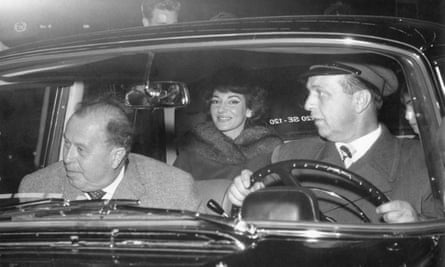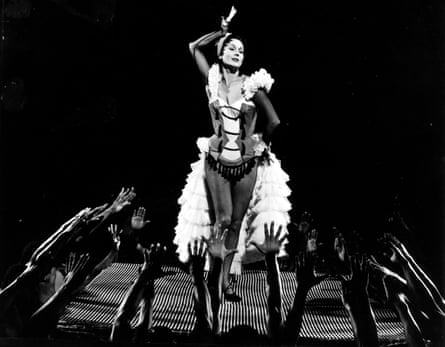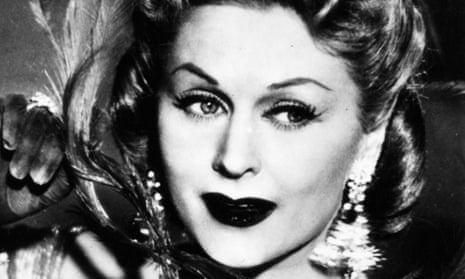One of Germany’s best-loved postwar actors has been exposed as a Soviet agent following the declassification of top secret intelligence documents.
Marika Rökk, who was banned from acting for two years for her apparent closeness to the Nazi regime, had in fact been working from the 1940s onwards for a reconnaissance network passing Third Reich secrets to Moscow.
Rökk was born in Cairo in 1913 to Hungarian parents and spent her childhood in Budapest. Her career began during the Nazi era as an operetta star, and she went on to perform in almost 40 films before her death aged 90 in 2004.
It is believed she was recruited as a KGB agent by her manager, Heinz Hoffmeister, who was already working for Soviet intelligence. What Rökk’s role was, and specifically what information she might have passed on to Moscow, remains unclear.

Her husband, the film director Georg Jacoby, is thought to have spied alongside her.
Krona, the network of agents she was a member of, was responsible for passing on high-class military intelligence, including plans for Operation Barbarossa and the Battle of Kursk.
The network was led by the legendary Soviet agent Yan Chernyak, nicknamed the “man without a shadow” for his ability to move around undetected. Chernyak himself was recruited by Soviet military intelligence while studying in Berlin in the 1940s.
His network of about 35 agents included bankers, military officials and secretaries, as well as the actor Olga Chekhova.
Rökk’s role as a Soviet spy was uncovered by the Gehlen Organisation, the West German agency which preceded Germany’s current foreign intelligence agency, the BND, and first made a formal note of its suspicions in its records in November 1951. In a file published by the tabloid Bild that had been classified top secret for 50 years, but which has just been released, Rökk’s “connections to Russian intelligence posts” – as Bild put it – are laid bare.
In 1951 Rökk announced she was giving up her acting career after 16 years. Newspapers at the time said that she wanted to devote herself to running a boutique selling authentic Swiss woollenware in Düsseldorf.
But west German intelligence concluded the plan was a “clever chess-move cover” allowing her to continue to spy for the Soviets.
Rökk was groomed by the Nazi regime to offer the Third Reich public homegrown acting talent to compete with the likes of Hollywood stars Ginger Rogers and Rita Hayworth. She was considered to be one of Hitler’s favourite actors and is reported to have had an affair with his propaganda minister, Joseph Goebbels.

She shot to fame in 1935 after starring in Leichte Kavallerie (Light Cavalry), becoming one of the most prolific stars of her time. She often starred alongside Johannes Heesters in propaganda films, and was said to bring a degree of exoticism to her roles with a light Hungarian accent.
It is not known if Rökk ever knew she was under suspicion for espionage. Neither is it known whether any attempts were made to prevent her from continuing. She was for years considered to have been anti-communist. The two-year work ban imposed on her at the end of the second world war as punishment for the close relationship she had with the inner circle of the Nazi leadership may have helped her keep up the pretence. Or she managed to keep a close relationship with both regimes.
A postcard dated November 1940 that she wrote to Hitler in which she thanks him profusely for a bouquet of flowers he sent her is on display in Berlin’s film museum.
